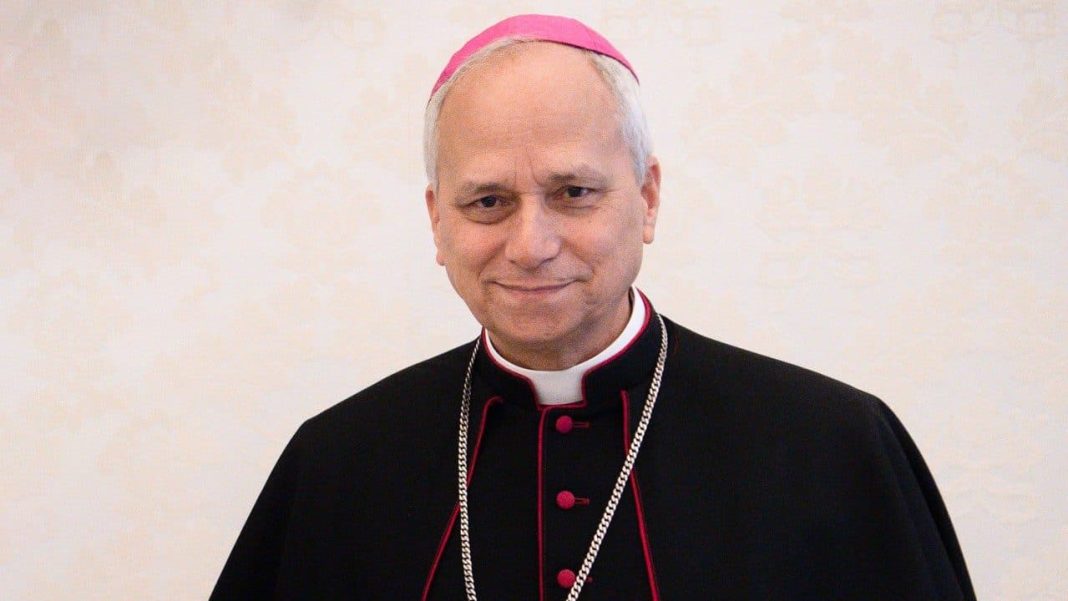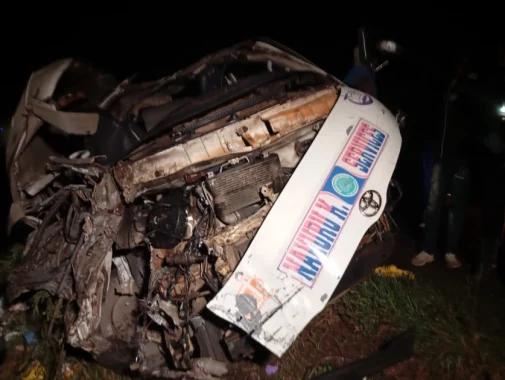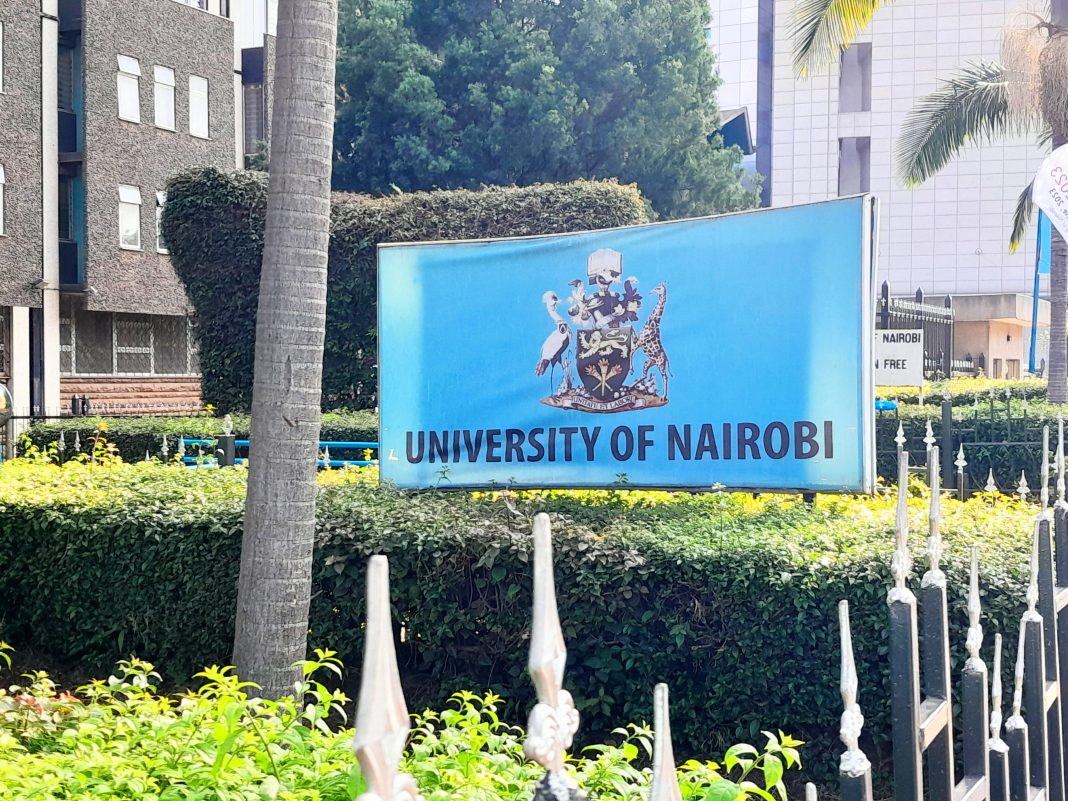Cardinal Robert Prevost, 69, of Chicago, has been elected the 267th Bishop of Rome. He chose the papal name Leo XIV. Born to immigrant parents, he becomes the first American-born pope in the Church’s 2,000-year history.
The conclave convened in the Sistine Chapel on May 7, 2025. A total of 133 cardinals participated. They elected Prevost after four ballots. White smoke signaled the election. Cardinal Dominique Mamberti announced “Habemus Papam!” from the central balcony of St. Peter’s Basilica.
The crowd initially fell silent, unfamiliar with the name Robert Francis Prevost. However, the atmosphere quickly shifted as Pope Leo XIV addressed the faithful in fluent Italian and Spanish, referencing his time serving in Chiclayo, Peru. “Peace be with you,” he told the crowds.
His deep ties to Latin America, alongside his American heritage, make him a unique figure in the Church’s leadership.
White smoke from the Sistine Chapel billowed into the sky on the cardinals’ second day of voting to announce his election in a secret conclave, while the bells of St. Peter’s Basilica and churches across Rome rang out.
The election of Pope Leo XIV has sparked reactions from leaders worldwide. President Bola Ahmed Tinubu of Nigeria congratulated the new pontiff, calling his election a “defining moment for the global Catholic community”. Similarly, South African President Cyril Ramaphosa described the event as “a profound moment for the Catholic Church and the global community”, expressing hope that Pope Leo XIV would strengthen faith and unity worldwide.
The new pontiff, who succeeds Argentine reformer Pope Francis, was introduced in Latin with his chosen papal name.
“It’s an amazing feeling,” said an elated Joseph Brian, a 39-year-old chef from Belfast in Northern Ireland, who came with his mother to Rome for the spectacle. “I’m not an overly religious person but, being here with all these people just blew me away,” he told AFP as people around him jumped up and down in excitement.
Pope Leo XIV steps into his role at a time of significant challenges for the Church. His predecessor, Pope Francis, was known for his progressive stance on social issues, and many expect Pope Leo XIV to continue in a similar vein. His views on immigration, social justice, and unity will likely shape his papacy, as he seeks to bridge divides within the Church and beyond.
The papal inauguration usually takes place less than a week after the election with a mass celebrated before political and religious leaders from around the world. The new pope will likely do a tour of St. Peter’s Square in his popemobile for the first time, before delivering a homily outlining his priorities.







[7571]acewin app|acewin login|acewin giris|acewin download|acewin register Experience the best online casino in the Philippines at Acewin. Secure your Acewin login, complete a fast Acewin register, and Acewin download the app for premium gaming. Quick Acewin giris access to top slots and gambling action! visit: acewin
Slot tại 188v tương thích với mọi hệ điều hành: iOS, Android, Windows – chơi mọi lúc, mọi nơi mà không cần tải app. TONY01-16
paypal casinos online that accept
References:
sitecjob.ir
us online casinos paypal
References:
http://www.jobv3.com
The leaderboard offers a fun new way to connect with your favorite creators and other
fans during live streams. The top fans leaderboard reflects
and ranks each viewer’s engagement in a live stream.
It is visible during live streams and ranks viewers based on their engagement in a given live stream.
The Microsoft 365 Copilot app brings together your
favorite apps in one intuitive platform that keeps your data secure with enterprise data protection.
Create equitable learning environments that help students develop knowledge with familiar apps essential to both academic and future career success.
Find your favorite apps, your files, and your inspiration with the Microsoft 365 Copilot app on the web.
Microsoft 365 empowers your organization to organize, and safely store files in OneDrive with intuitive and easy organizational tools.
The Microsoft 365 Copilot app empowers your employees to do their best
work with Copilot in the apps they use daily.
References:
https://blackcoin.co/players-club-vip-casino/
The theme then changes over to the spring display, which lasts until
May, and usually features a butterfly house as well as many
varieties of tropical flowers. The fountains are a popular attraction, and among the most photographed places in the United States.
The fountains dance along to match the rhythm of
the music, and water shoots as high as 460 feet.
Fountains of Bellagio is a free musical fountain show performed in the resort’s 8.5-acre
lake. It was the first time that such retailers had opened in Las Vegas, as Via Bellagio was the city’s first retail center focused on luxury brands.
Since its opening, the resort has included a high-end retail area
known as Via Bellagio.
There are also spas nearby, a garden café, and more that bring the Bellagio pool experience to the top of our Las
Vegas to-do list. The ample floor plan carries over to the
Italian marble and granite-topped bathroom where you will find a whirlpool tub, separate shower and
deluxe spa products. The height of luxury living can be experienced in each of Bellagio Hotel & Casino
Resort’s Salone Suites. Located in the Spa Tower, these rooms provide spectacular views of the Las Vegas Strip and a partial
view of the Fountains of Bellagio Hotel & Casino Resort.
Mood lighting, individual climate controls and individually controlled reading lights offer
guests comfort and convenience. Plus, the Bellagio Hotel Vegas is pet-friendly, so even the four-legged members of
the family are welcome at the resort.
Las Vegas developer Irwin Molasky said, “In our lifetime we will never see another building or hotel with such beauty and grace”.
Casino executive Bobby Baldwin served as the resort’s president.
More than half of the resort’s revenue was expected to come
from non-gaming amenities. Other attractions included a conservatory and the $285 million Bellagio Gallery of
Fine Art. The resort’s main attraction was an 8.5-acre man-made lake,
featuring a water show known as Fountains of Bellagio.
References:
https://blackcoin.co/minimum-deposit-casino-sites-with-payid/
Das Restaurantpersonal, insbesondere während des Frühstücks,
wird immer wieder für seine harte Arbeit, sein angenehmes Auftreten und seinen schnellen Tischservice hervorgehoben. In ähnlicher Weise ist das
Feedback zum Barservice unterschiedlich; einige Gäste loben die Aufmerksamkeit
und Freundlichkeit des Barpersonals, während
andere aufgrund des wahrgenommenen Personalmangels einen langsamen Service feststellen.
Während der Check-in-Prozess in der Regel reibungslos verläuft,
berichten einige Gäste von gemischten Erfahrungen mit dem
Rezeptionspersonal, das sie gelegentlich als gleichgültig oder wenig hilfsbereit empfanden. Das Housekeeping-Team wird
oft als effizient und gründlich beschrieben, wodurch sichergestellt wird,
dass die Zimmer sauber gehalten werden. Personal & ServiceDas Hotelpersonal erhält im Allgemeinen positives Feedback, wobei viele Gäste das
freundliche Personal, das hilfsbereite Personal und den professionellen Service loben.
In Traumlage auf einem Felsen mit toller Aussicht auf Funchal und den Hafen. Hallo,
bitte wende dich hierzu gern an unsere Reiseberater. Wir möchten gerne ein ruhiges
Zimmer in den oberen Etagen, und ist ein Wasserkocher auf dem Zimmer ??
Darf ich auf dem Balkon rauchen?
Fanal Forest ist einmalig, besonders im Nebel. An sonst haben wir die App
GetYourGuide und des Reiseveranstalters benutzt. Moin, auf jeden Fall deren Restaurants in Funchal aber auf keinen Fall vom
Hotel besuchen.
References:
https://online-spielhallen.de/fresh-casino-cashback-dein-weg-zu-mehr-spielguthaben/
Can you be more specific about the content of your article? After reading it, I still have some doubts. Hope you can help me.
Can you be more specific about the content of your article? After reading it, I still have some doubts. Hope you can help me. binance skapa konto
Thank you for your sharing. I am worried that I lack creative ideas. It is your article that makes me full of hope. Thank you. But, I have a question, can you help me?